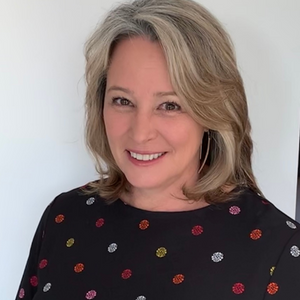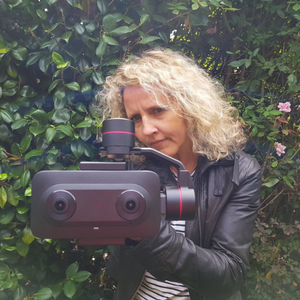Why Micro-affirmations Matter as a Leader
 While microaggressions and micro-inequities contribute to experiences of exclusion for many at work, frequent experiences of micro-affirmations could help to cultivate a culture of inclusion. Every single person is capable of being an agent of micro-affirmations – and as a woman leader, you’re more likely to be ahead of the curve.
While microaggressions and micro-inequities contribute to experiences of exclusion for many at work, frequent experiences of micro-affirmations could help to cultivate a culture of inclusion. Every single person is capable of being an agent of micro-affirmations – and as a woman leader, you’re more likely to be ahead of the curve.
Microaggressions and Micro-Inequities Create Exclusion
Microaggressions are the brief and everyday slights, insults, indignities, and denigrating messages sent to marginalized groups. Though often unconscious, they perpetuate a devalued “otherness” by: establishing the majority group as the norm, “highlighting a person’s ‘difference’ from the majority represented group” in a way that diminishes, discomforts or disapproves, and reinforcing thinly veiled stereotypes. This includes “complimenting” an individual in a way that implies “exception” to a hidden underlying group assumption.
Verbal examples that different members of BIPOC communities experience include:
- “Your name is hard to pronounce.”
- “You’re so articulate.”
- “But, where are you really from?”
- “I don’t see color.”
- “Your English is really good.”
In a similar vein, micro-inequities are “cumulative, subtle messages that promote a negative bias and demoralize.” These reaffirm the status quo of power dynamics and discourage, devalue and impair workplace performance for non-majority groups.
Common gender related examples that women face include:
- Asking the woman in the room to get the coffees
- Mansplaining and manterruption
- More multi-tasking on phones while a woman is speaking
- A woman’s idea being dismissed and later mis-attributed to a man
- Women in the room receiving less eye contact from the speaker
Microaggressions create cumulative psychological harm – impacting upon mental, emotional, and physical health. Long-term exposure is associated with symptoms of depression, anxiety and can be corrosive to self-worth and self-esteem.
In Forbes, Paolo Gaudino suggests that one effective way to measure inclusion is to ask people whether and how often they have incidents of exclusion. The sum impact of microaggressions and micro-inequities is the substantial harm of exclusion.
Micro-affirmations Help to Creating Inclusion
According to Mary Rowe at MIT, “micro-affirmations” are “apparently small acts, which are often ephemeral and hard-to-see, events that are public and private, often unconscious but very effective, which occur wherever people wish to help others to succeed.” They foster inclusion, listening, comfort, and support for people who may feel unwelcome or invisible in an environment. Micro-affirmations can proactively affirm belonging, value and sense of self.
As shared by The Harriet W. Sheridan Center for Teaching and Learning at Brown University, “Micro-affirmations substitute messages about deficit and exclusion with messages of excellence, openness, and opportunity.”
Drawing on her own experience as an executive at an international engineering firm years ago, Change Catalyst CEO Melinda Briana Epler, defines micro-affirmations as “little ways that you can affirm someone’s identity; recognize and validate their experience and expertise; build confidence; develop trust; foster belonging; and support someone in their career.”
University of Kansas research found that being aware of a male ally who is vocal about gender equality reduces anticipated feelings of isolation for women in STEM and increases anticipation of support and respect. Research has shown that experiencing micro-affirmations – such as “affirmations that people of your culture/ethnicity/gender/sexual orientation are important contributors to advancing knowledge,” “affirmations that you are a scientist,” and “affirmations that you can complete your degree” – help increase student’s integration into the science community and intentions to persist in the STEM field. Other research has suggested that integrating micro-affirmations in academic advising in the college environment could fuel optimal student development and better engagement, retention and graduation outcomes.
Rowe hypothesizes that regular practice of using micro-affirmations could increase one’s tendency to be “universally respectful” to others. Affirming others has the potential to create a positivity loop that ultimately fosters a more inclusive culture – supporting both marginalized voices in the workplace and your female peers and colleagues.
What Do Micro-affirmations Look Like in Action?
As found in the Women in the Workplace 2021 Report, employees report women are more likely showing concern for the overall well-being of their reports, supporting them emotionally and checking in on their work/life challenges
“Allyship is really seeing the person next to us,” says Epler. “And the person missing, who should be standing next to us.” She encourages us to all be allies to each other.
Here are examples of everyday micro-affirmations that you can use to help support others, especially those underrepresented and marginalized voices in your teams:
- Give your undivided presence when others are speaking or presenting. As a leader, you have the opportunity to model being attentive to and listening to others. Notice when you go for your phone or an e-mail. Ask thoughtful questions that reflect real engagement.
- Be an active listener. Use reinforcing body language. Eye contact, nods, facial expressions, tone of voice and choice of words all contribute to convey care and listening. By repeating back key points that struck you, you can let others know you were attentive and valued what they shared.
- Invite individuals from marginalized communities into the room with you to be part of the discussion. Also help to create the space so they are heard, which may include leveraging your position of relative power to intercept an interruption. Using your voice to advocate for the voices of others is empowering to everyone.
- Echo good ideas that members of your team raise and attribute those ideas back to the person, especially when you see their ideas being overlooked or highjacked. Support your female colleagues and underrepresented voices to receive the due credit for their contributions. “Building upon what Jasmine said” is one approach.
- Publicly acknowledge the accomplishments, expertise and skills of marginalized team members and help raise their profile with others, especially as many have to reassert these more just to be heard. Reflecting back qualities or contributions you appreciate to individuals can also impact upon feeling seen and valued.
- “Mirror” the language that people use to describe their identity. Epler emphasizes to listen and learn to how people describe themselves so you can use that language. Pay attention to how someone refers to their gender or pronouns. Don’t make assumptions about sexual orientation. If you don’t know how to say a name, ask and then, get it right.
- Create openings for the underrepresented voices in the room. If someone is consistently quiet or not participating, check in on them, also as they may feel more comfortable to share ideas in another forum. Invite the less heard voices in the room to contribute on topics where you know they have value to add and encourage in confidence with your desire to hear it.
- Give opportunities for visibility. When you receive an invitation to a networking opportunity, consider if you can bring an underrepresented individual along. When you have a speaking invitation, can you also use highlight an expert in your team and share the spotlight? For events you participate in, hold event organizers accountable for having diversity of representation. Refer and encourage underrepresented people to go for opportunities – help to close the confidence gap and mentor or sponsor them.
- Acknowledge important moments – birthdays, milestones, holidays, anniversaries – which shows that you are paying attention to others and care. Overcome affinity bias by taking a genuine interest in people in your team who are less like you and in what their lives might be like outside of work.
- Provide honest feedback, formal and informal, and both positive and constructive. Epler notes women tend to receive less quality feedback, and more on communication style than actionable developmental skills. While everyone needs to hear what they are doing well, make sure you are not shying away from giving constructive input to anyone out of discomfort, if it will serve their growth and development.
As Rowe says, micro-affirmations may often even be unconscious, too, as they just feel like caring. But you can actively create inclusion for others by intentionally affirming the value and contribution that we each bring to the table.
By Aimee Hansen










